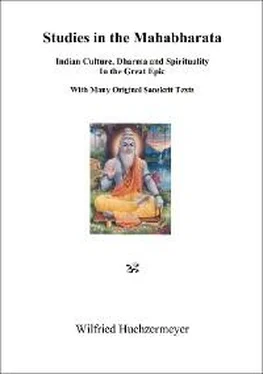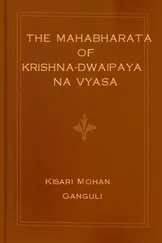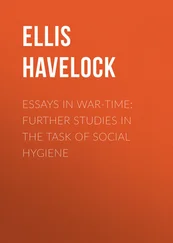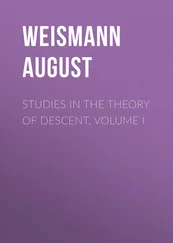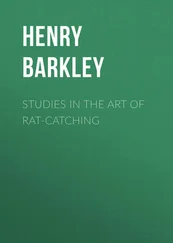It was the Indian scholar Sukthankar who defended the Indian position on the scholarly level. In his book On the Meaning of the Mahābhārata he writes:
I may add, there is to my knowledge not a single passage in the Mahābhārata which does not presuppose the divinity or the cosmic character of Śrī Kṛṣṇa; or, to put it more precisely, which does not assume that he is an Avatāra or incarnation of Viṣṇu-Nārāyaṇa, in the peculiar sense in which the word “Avatāra” is used in Indian philosophy or metaphysics.27
We believe that Sukthankar’s observations are correct, at least with reference to the first five Books of the epic which we have scrutinized closely in this respect.
Several of the following chapters will deal with the personality of Kṛṣṇa and describe his specific role in various situations and circumstances. In this present chapter his role as close and beloved friend of the Pāṇḍavas will be analyzed. We will do this by means of a verse-by-verse interpretation of the second adhyāya of the Sabhāparvan which describes in beautiful poetry Kṛṣṇa’s departure after a long stay with the Pāṇḍavas. It gives deep insight into some special features of Indian culture, some highlights of the ancient tradition. However, before we turn to this scene, we will offer a very brief survey of Kṛṣṇa in the Ādiparvan.
Kṛṣṇa in the Ādiparvan
Right at the beginning Viṣṇu is identified with Kṛṣṇa Hṛṣīkeśa, “the guru of all creatures, Hari”. Viṣṇu is the primeval puruṣa, the true, the one-syllabled brahman, everlasting, manifest and unmanifest, existent and nonexistent.28
Another early verse illustrates the relationship between Kṛṣṇa and the Pāṇḍavas through the image of a tree:
The righteous Yudhiṣṭhira is the great tree, Arjuna its crotch, Bhīmasena the branches, Mādrī’s two sons the rich blossoms and fruits, and Kṛṣṇa, brahman and the Brāhmins the root.29
The first appearance of Kṛṣṇa, the Yādava chieftain, in the text of the Critical Edition is at Draupadī’s Bridegroom Choice where the Pāṇḍavas took part disguised as Brāhmins. Only Kṛṣṇa sees through the disguise and mentions this to his brother Balarāma, who confirms this discovery with a smile.30
When Arjuna had won Draupadī through his skill in archery, the other competitors grew jealous and attacked Drupada. Arjuna and Bhīma fought a successful battle against the aggressors, but it was Kṛṣṇa’s intervention which finally brought about peace and the recognition of the Pānḍavas’ claim of Draupadī. He “restrained all the kings”, telling them that “she was won according to dharma”.31
When the marriage of Draupadī with the five Pāṇḍavas was performed, Kṛṣṇa is reported to have sent many precious gifts. Meanwhile the Kauravas grew aware of the new constellation of forces and recognized that the Pāṇḍavas were now backed by Drupada and Kṛṣṇa. Karṇa therefore proposes a surprise attack on the Pāṇḍavas before they would become too powerful to be defeated. Kṛṣṇa’s potential role as a reliable supporter of the Pāṇḍavas, prepared to make any sacrifice for bringing them back to power, is clearly perceived by him.
Another important scene with Kṛṣṇa is the abduction of Subhadrā, in which he had a leading hand (see previous chapter). The Ādiparvan ends with the burning of the Khāṇḍava forest in the course of which Kṛṣṇa and Arjuna kill numberless innocent creatures in a terrible feast of destruction at the behest of Agni. The meaning of this episode eludes us entirely, it does not appear to be genuine; probably it was added later by some author with an unknown intention, or else we are simply not able any more today to understand its significance. Only seven creatures survived the fire, among them the asura Maya who then becomes the link to the next Book, the Sabhāparvan.
Maya is the chief architect of the Dānavas, a powerful and efficient master builder who offers his services to Arjuna now for having been protected by him from the fire as well as from Kṛṣṇa’s discus. But Arjuna refers the asura to Kṛṣṇa who suggests that Maya should build a big Assembly Hall for Yudhiṣṭhira, and the asura gladly accepts this proposal. Soon after this scene Kṛṣṇa gets ready for his departure from the Pāṇḍavas, and it is this particular scene which is of special interest in this chapter.
The Ritual of Departure
uṣitvā khāṇḍavaprasthe sukhavāsaṁ janārdanaḥ /
pārthaiḥ prītisamāyuktaiḥ pūjanārho’bhipūjitaḥ //
gamanāya matiṁ cakre piturdarśanalālasah / 2.2.1
After Janārdana, duly honoured by the affectionate Pārthas, had stayed happily in the Khāṇḍava region, he felt desirous of seeing his father and therefore resolved to take leave.
Kṛṣṇa’s stay with the Pāṇḍavas was of a very happy nature. The reason is given: the Pārthas are full of affection for him. But it is more than a mere friendly relationship – the Pāṇḍavas are aware of Kṛṣṇa’s greatness and honour him as one who deserves honour abundantly (pūjanārho’bhipūjitaḥ). As relatives (cousins) they are on a par with Kṛṣṇa; in the field of wisdom and knowledge of right action they recognize his superior standing and power.
A motive is given for Kṛṣṇa’s departure which ranks higher than his love for the Pāṇḍavas at this moment: his obligation and desire to be with his father Vasudeva. All this may be regarded as a mere formality and in a way it is. But we want to draw attention to the master hand of the poet who, like a skilled diplomat conceiving the wording of a communiqué on a high-level meeting, chooses words with care so as to satisfy listeners, assuring them of the perfectly harmonious nature of Kṛṣṇa’s stay with the Pāṇḍavas.
dharmarājamathāmantrya pṛthāṁ ca pṛthulocanaḥ // 2
vavande caraṇau mūrdhnā jagadvandyaḥ pitṛṣvasuḥ /
sa tayā mūrdhnyūpāghrātaḥ pariṣvaktaśca keśavaḥ // 3
The large-eyed Kṛṣṇa bade farewell to the Dharmarāja and to Pṛthā. He who is adorable to the world, adored with his head the feet of his father’s sister. She kissed Keśava on his head and embraced him.
Kṛṣṇa wishes good-by to Yudhiṣṭhira and Kuntī. His great humility is shown: being himself worthy of worship, he makes praṇāma at the feet of his aunt.
dadarśānantaraṁ kṛṣṇo bhaginīṁ svām mahāyaśaḥ /
tāmupetya hṛṣīkeśaḥ prītyā bāṣpasamanvitaḥ // 4
arthyaṁ tathyaṁ hitaṁ vākyam laghu yuktamanuttamam /
uvāca bhagavānbhadrāṁ subhadrāṁ bhadrabhāṣiṇīm // 5
Then the illustrious Kṛṣṇa Hṛṣīkeśaḥ approached his sister affectionately, his eyes filled with tears, and the blessed Lord spoke meaningful, apt, helpful, brief, appropriate and excellent words to the gentle, gentle-spoken Subhadrā.
The poet makes ample use of the device of alliteration in all these verses, whose beauty gets lost in any translation. Note in verse 1: pārthaiḥ prītisamāyuktaiḥ and pūjanārho’bhipūjitaḥ. In verse 2: pṛthāṁ pṛthulocanaḥ … pītṛśvasuḥ and vavande jagadvandyaḥ. The climax of this beautiful sound play is reached in the last line of verse 5, which is pure music: bhagavānbhadrāṁ subhadrāṁ bhadrabhāsīṇīm.
The poetic device is used here not for the sake of itself as in the alaṁkāra type of Indian classical poetry, but as a colourful means of expressing deep and genuine emotion between an extraordinary brother and sister. Kṛṣṇa has tears in his eyes (bāṣpa-samanvitaḥ), which speaks of his psychic love for his sister. His manifold advice to her is not for the sake of advice; it is only a medium of his love, his wish to speak to her and caress her with words.
Читать дальше
